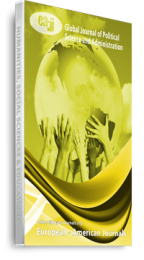The study seeks to examine Local Government and Good Governance in Nigeria: A Case Study of Emohua Local Government Area of Rivers State, (2004-2007). A sample of 400 respondents from 14 wards of Emohua Local Government Area in Rivers State, Nigeria was studied. Out of the 400 copies of questionnaire administered, 387 copies were retrieved and after going through them, 381 copies (i.e. 95% response rate) were found useful for data analysis. The study has identified the key problems affecting good governance, sustainable development and the economic empowerment of the people in local government areas in Nigeria; they include: Lack of funds to execute local government programmes, Lack of employment opportunities, Bribery and corruption / incompetence, lack of transparency and accountability, lack of planning for Good Governance / public objectives, non government co-operation on socio- economic issues for the citizenry / decisions poor capacity utilization. The attainment of good governance in Nigeria under the current democratic dispensation is a joint endeavour of the governmental tripod; Federal, State and Local governments. Local government has come a long way in the country. However, it is observable that local governments in the country are hardly effective and efficient. Indeed there is still loud yearning for good governance at the local government level. The study therefore recommends that: Instead of direct sharing or transfer of cash, local government should embark on programmes that can empower local citizenry. Equally, the controlling state governments should show good example in transparency and accountability to local political leaders. This will minimize corruption at local level. Finally, State governments should also desist from hijacking the functions of local government. It is by allowing local political leaders to discharge these functions while in office that they can master the ropes of governance.
Keywords: Good Governance, Local Government, Sustainable Development

